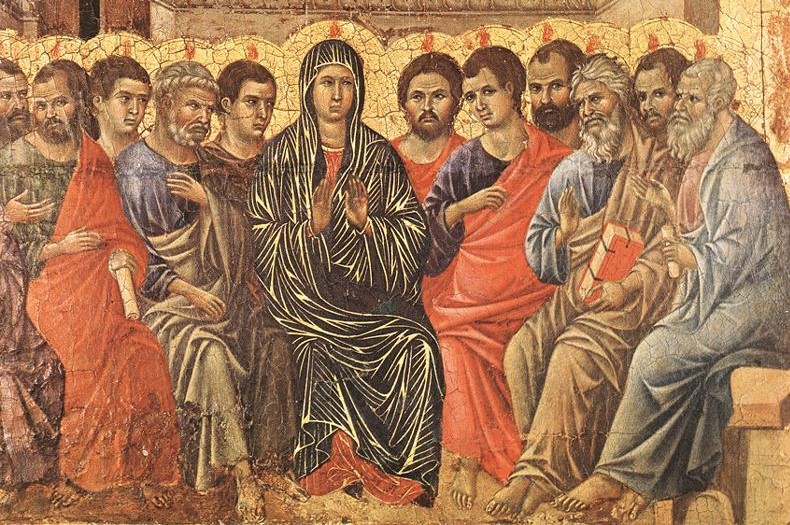Podcast: Play in new window | Download
Subscribe: Spotify | Email | RSS

In this second part of my conversation with apologist Dale Glover, I object to the argument he presented in part 1 (see below).
Topics discussed include how to understand “the Holy Spirit” in the Bible, why we can’t (I argue) treat the New Testament like those authors treat the Old Testament, the significance of personal pronouns when it comes to interpretation, the fact that there is no biblical passage which clearly teaches that God is tripersonal, Yahweh identifying features, Yahweh distinguishing features, divine immortality and how a divine Jesus could possibly die, and what it is to die.
Dale Glover’s argument that something like Craig’s “Trinity Monotheism” is implied by the New Testament is:
- There is only one (“echad” not “yachid”) God.
- In the Bible God the Father, Jesus and the Holy Spirit are distinct individuals/persons (standing in interpersonal “I-THOU” relations to each other).
- According to the Bible, anything which has one or more of the Yahweh-identifying features is, minimally, a proper, distinctive, and essential part of God/Yahweh.
- God the Father, Jesus & the Holy Spirit have ONE OR MORE of the Yahweh-identifying features.
- The Trinity Monotheism model entails that God the Father, Jesus and the H.S. are distinct individual persons subsisting within one God named Yahweh proper (i.e. one thing/Being/immaterial or spiritual soul) – a model that is at least consistent with the biblical data.
- Therefore, there are three distinct individuals/persons named God the Father, Jesus and the Holy Spirit who are (minimally) proper, distinctive and essential parts of the one God/Yahweh (i.e. Trinity Monotheism model affirmed in Jewish language as opposed to Greek philosophical terminology of the later Creeds). This is consistent with the Biblical Data.
What’s your reaction to the whole discussion? Which side made the stronger case, and why?
Links for this episode:

- Real Seeker Ministries (this discussion)
- podcast 13 – On Bauckham’s Bargain
- podcast 214 – Has Bauckham clarified his “divine identity” theory? – Part 2
- podcast 213 – Has Bauckham clarified his “divine identity” theory? – Part 1
- podcast 259 – Who is the one Creator? – Part 2podcast 258 – Who is the one Creator? – Part 1
- podcast 107 – Dr. Robert M. Bowman Jr. on triadic New Testament passages – part 1
- podcast 108 – Dr. Robert M. Bowman Jr. on triadic New Testament passages – part 2
- podcast 26 – Pastor Sean Finnegan on “the Holy Spirit” – Part 2
- podcast 25 – Pastor Sean Finnegan on “the Holy Spirit” – Part 1
- Benjamin Sommer on God’s Bodies on the Old Testament
- podcast 189 – The unfinished business of the Reformation
- podcast 145 – ‘Tis Mystery All: the Immortal dies!
- On arguments from pronouns see: “Divine Deception and Monotheism,” Journal of Analytic Theology
- odcast 291 – From one God to two gods to three “Gods” – John 1 and early Christian theologies
- podcast 144 – Dr. Timothy Pawl’s In Defense of Conciliar Christology – Part 2
- podcast 143 – Dr. Timothy Pawl’s In Defense of Conciliar Christology – Part 1
- podcast 73 – Is Proverbs 8 about Jesus? Part 3
- podcast 72 – Is Proverbs 8 about Jesus? Part 2
- podcast 71 – Is Proverbs 8 about Jesus? Part 1
- podcast 70 – The one God and his Son according to John
- On Plato’s Timaeus on it’s influence on the Logos theologians, see this piece
- podcast 248 – How Trinity theories conflict with the Bible
- On historical-critical interpretation undermining traditional trinitarian exegesis: podcast 252 – Fred Sanders on Seeing the Trinity in Scripture, and his Secrett
- Matthew 3:15-17, Acts 2:1-4, Jesus as spirit refs; Ephesians 4:1-6; 2 Corinthians 13:13; John 1; Colossians 1; 1 Corinthians 8:4-6; Acts 17:30-31; Daniel 7:13-14; Numbers 21:4-9; 1 Timothy 6:13-17; 1 Timothy 1:17; Romans 1:23; Proverbs 8:22-31; John 1:1, John 1:14-18; Baruch 3:9-37; Sirach 24:1-4; Mark 12:28-34; John 6:4; John 8:54.
- This week’s thinking music is “Synchronicity” by Unheard Music Concepts.

Dr Tuggy, you had a lot to say and I really don’t think Mr. Glover got close to refuting anything you objected with. I think the God can’t die/Jesus died discussion is really telling. Mr. Glover was not comfortable agreeing with any of the corners you put his view into, but common-sense thinking requires those corners.
I think the biggest take-away I got from this discussion (and many like it) is that it is quite easy for a Unitarian Christian to state their case quoting entire passages of scripture verbatim, while the Trinitarian (any category) must write essays of qualifiers for each of their main pillars as they draw from biblical sources. The former is clear, simple, and discussed in the bible, the latter is wildly confusing and never clearly discussed in the bible.
I still wonder how people claim to believe something they don’t understand (although I was one of those for a number of years).
Comments are closed.